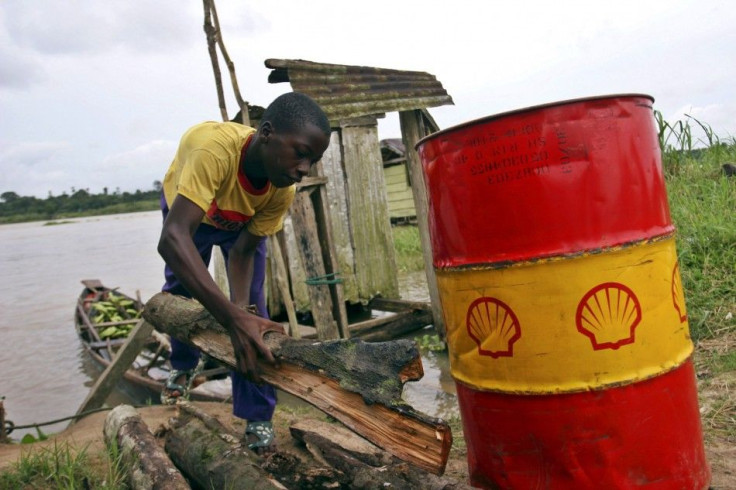Nigerian Oil Spills Lead to World's 'Most Long Term' Environmental Disaster: UN
Oil Companies Have Devastated the Ogoniland Region of Nigeria

Shell Oil operations in Nigeria have left the Ogoniland region in the Niger Delta more polluted than environmentalists expected, with toxic drinking water lurking unseen underground in many areas.
A new study by the United Nations Environment Programme, published Thursday, outlined the disastrous effect the oil industry has had on Nigeria's environment. With the study, which was done at the request of the Nigerian government, the U.N. hopes that a large-scale and difficult clean up can finally begin.
"The environmental restoration of Ogoniland could prove to be the world's most wide-ranging and long term oil clean-up exercise ever undertaken if contaminated drinking water, land, creeks and important ecosystems such as mangroves are to be brought back to full, productive health," the U.N. stated.
The first five years of clean up could cost as much as $1 billion, which the U.N. believes should be fronted by oil companies and the Nigerian government.
Ogoniland is the country's main oil producing region. It is home to mainly farmers and fishermen, and has been devastated by unchecked oil companies.
Hydrocarbons and cancer-producing materials were found in the soil and drinking water, posting a serious health risk to the villagers and inhabitants of the area.
In a township called Nisisioken Ogale, U.N. researchers found that people have been drinking water with levels of benzene -- a known carcinogen -- 900 times higher than international guidelines.
Additionally, scientists found an eight-centimeter layer of refined oil sitting atop the groundwater, believed to be left over from a spill six years earlier.
Much, but not all, of the devastation can be blamed on Shell Gasoline. The Anglo-Dutch oil giant used to be the largest oil company in Ogoniland, but they were expelled in 1994 for pollution. Yet, Shell accepted responsibility for two 2008 ruptures in the Bodo pipeline in Ogoniland that experts say were as bad as the Exxon Valdez spill in Alaska in 1989.
"The crude oil that gushed unchecked from the two Bodo spills... has clearly devastated the 20 sq km network of creeks and inlets on which Bodo and as many as 30 other smaller settlements depend for food, water and fuel," The Guardian reports.
"No attempt has been made to clean up the oil, which has collected on the creek sides, washes in and out on the tides and has seeped deep into the water table and farmland."
Since the spill, Shell has offered the communities of Bodo just $5,700, 50 bags of rice, 50 bags of beans and a few cartons of sugar, according to The Guardian.
"Although we haven't produced oil in Ogoniland since 1993, we clean up all spills from our facilities, whatever the cause, and restore the land to its original state," Mutiu Sunmonu, a managing director at Shell Petroleum Development, stated to Bloomberg.
"The majority of oil spills in Nigeria are caused by sabotage, theft and illegal refining."
However, the U.N. report claims that Shell neglected to follow their own safety procedures while in Nigeria. Oil spills have destroyed vegetation, fisheries and caused ground fires, after which re-vegetation is almost impossible.
"At some sites, a crust of ash and tar has been in place for several decades," the report stated.
Between Shell and other oil companies, there are on average three oil spills a day in Ogoniland.
Shell currently faces a class action lawsuit over the pipeline spills, and if they lose the case they could be required to pay out hundreds of millions of dollars.
The United Nation's project is confident that with a consolidated effort, many regions of Ogoniland can be cleaned up within five years. Heavily impacted areas could take as long as 30 years, however, even if a cleanup begins immediately.
For any renewal projects to be successful, all oil operations must cease in the area. And for that to happen, the Nigerian government must be willing to give up the oil revenue that helps sustain the country.
"We very, very much hope that this report will change the situation," said Audrey Gaughran of Amnesty International.
"For change to happen, the government of Nigeria must do much more and the companies have to stop blaming everybody else."
© Copyright IBTimes 2024. All rights reserved.





















